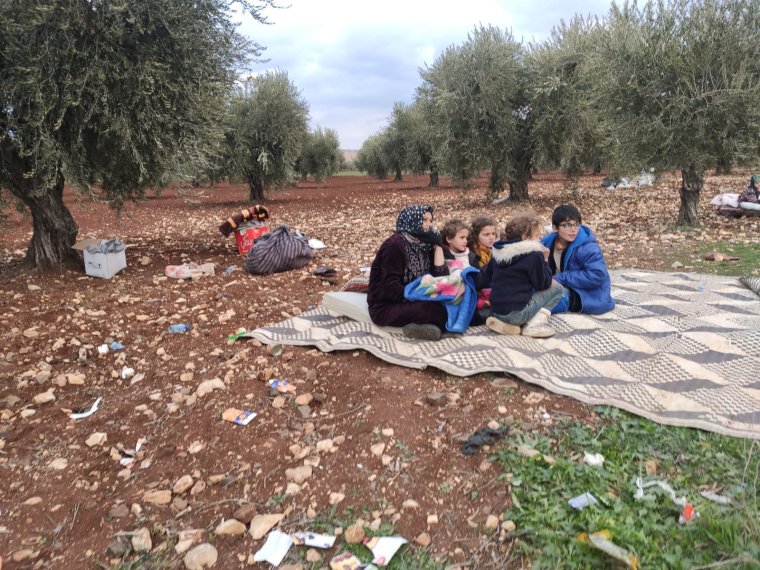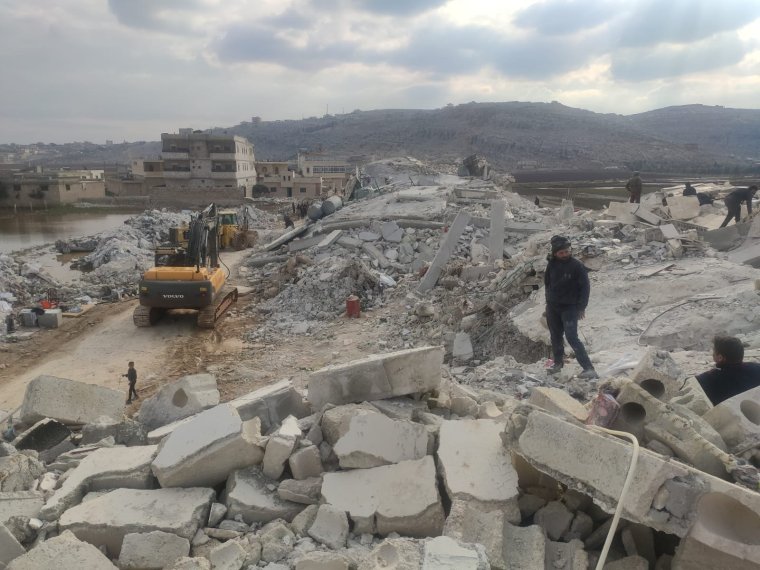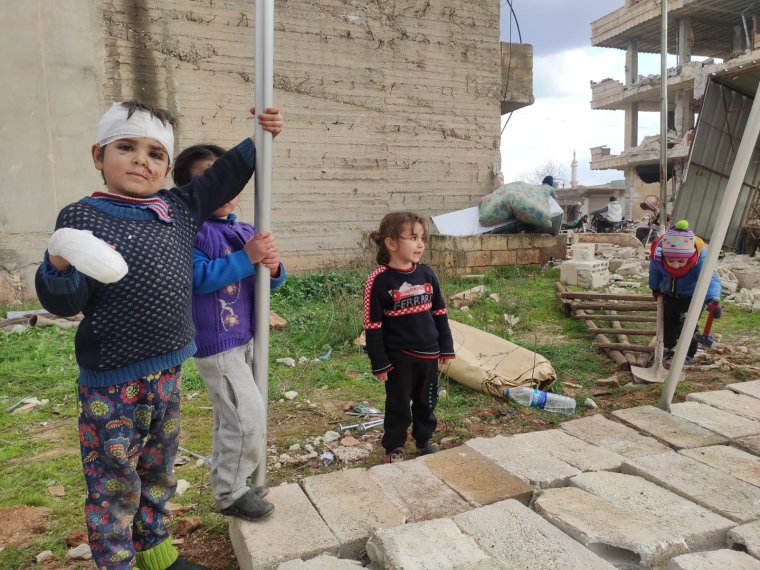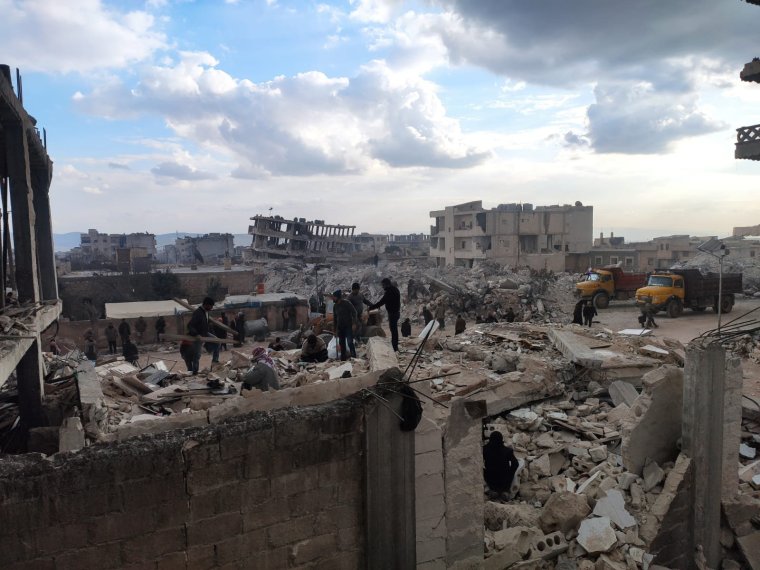Earthquake survivors in Syria were forced to listen to the voices of loved ones and neighbours trapped beneath the rubble for days as they waited for equipment to free them that never came.
A week on from the 7.8-magnitude earthquake that devastated parts of southern Turkey and north-west Syria, international aid has still not reached some of the worst-affected regions.
In the north-west of Syria, which has endured 12 years of civil war, earthquake survivors had to use their hands to dig through the rubble because they had no specialist search and rescue equipment.
“For the first three days, I heard many voices, many appeals from under the rubble,” Abdulkafi Alhamdo, a Syrian activist based in Idlib, who has been volunteering in the rescue effort in the surrounding towns, said. “Just a few metres from me, and I cannot help them.

“These voices were coming, but nevertheless, I couldn’t do anything. No one could do anything. What can our bare hands do for those under the rubble?
“Many of them we couldn’t reach just because we didn’t have enough equipment. So now we are still trying to reach them, of course, and we will keep reaching maybe in the coming days, but just for their bodies.
“Hopes of rescuing people from under the rubble is zero now,” he added.

At least 36,000 people are known to have died in the earthquake. In north-west Syria, which is already dependent on international aid, more than 4,300 have been killed and more than 7,600 injured, according to the UN.
However, authorities have been unable to access many of Syria’s affected areas, which are largely in territory held by numerous rebel groups. Aid can only reach them via Syrian government territory, where it risks being misappropriated or diverted to regime supporters, or through the Bab al-Hawa crossing from Turkey.
The UN said its first convoy reached Syria on Thursday, three days after the quake. However, Mr Almadho, who has been helping in towns including Sarmada, Jindires and Harem, said the first aid he saw was on trucks from the Qatari and Saudi Red Crescent on Saturday.

“These are the only response that we have received,” he said. “I cannot describe how we will feel inside Syria because of this reaction from the United Nations. The weather is five [degrees] below zero, people are in the open having nothing, and nevertheless, the UN was just speaking, giving us words, promises.
“Many, many people’s lives, many souls that can be saved if United Nations responded at the appropriate time. It’s days and we don’t see a response.”
He added that before Thursday, many bodies of Syrian refugees who had settled in Turkey had been transported over the border back to Syria for burial following their deaths in the quake, and yet the same roads had not been used to bring aid.

“If you are speaking about 10, 20 trucks, this would not be enough for half a city, for the thousands of areas that have been destroyed. So that’s why I say the reaction from the UN was really heartbreaking,” Mr Almadho said.
Martin Griffiths, the UN’s Under-Secretary-General for Humanitarian Affairs, acknowledged that Syrians had been left “looking for international help that hasn’t arrived”. Visiting the Turkish-Syrian border on Sunday, he said: “We have so far failed the people in north-west Syria. They rightly feel abandoned. My duty and our obligation is to correct this failure as fast as we can.”

A UN aid convoy scheduled to cross into rebel-held Idlib from the government area on Sunday was cancelled after its entry was blocked by the rebel group Hayat Tahrir al-Sham. The Department of Political Affairs in the Liberated Areas, linked to the group, had said previously “the liberated areas do not have crossings with the criminal regime”, and added that the Bab Al-Hawa crossing was the only entry point through which aid could enter.
Turkish-backed rebels have also blocked aid convoys sent by US-backed Kurdish groups from reaching earthquake victims.
More from News
But for people who have survived 12 years of war and now a devastating earthquake, the need for aid is growing more urgent by the day. “Many thousands of people are having to camp outside in freezing temperatures, without shelter, blankets, and little food which is running out,” said Mr Alhamdo. “Hundreds of thousands of people in the streets having nothing in an area which is already just disaster. From the first day, the whole north-west Syria doesn’t have a blanket, one blanket doesn’t have a tent, doesn’t have a mat for people to stay on.”
Syrian people felt abandoned by the international community, he added. “When the UN is giving some people aid before the others, letting others just wait, this means that they are understating these people, that they are don’t respect these people’s lives.
“We are very sad about Turkish people who died. We are very sad about those people who are in regime areas who died… we need even just the same, the same rights. We don’t need more than that. That’s only what we need. We need to be treated as human beings, as anyone else in this world.”

